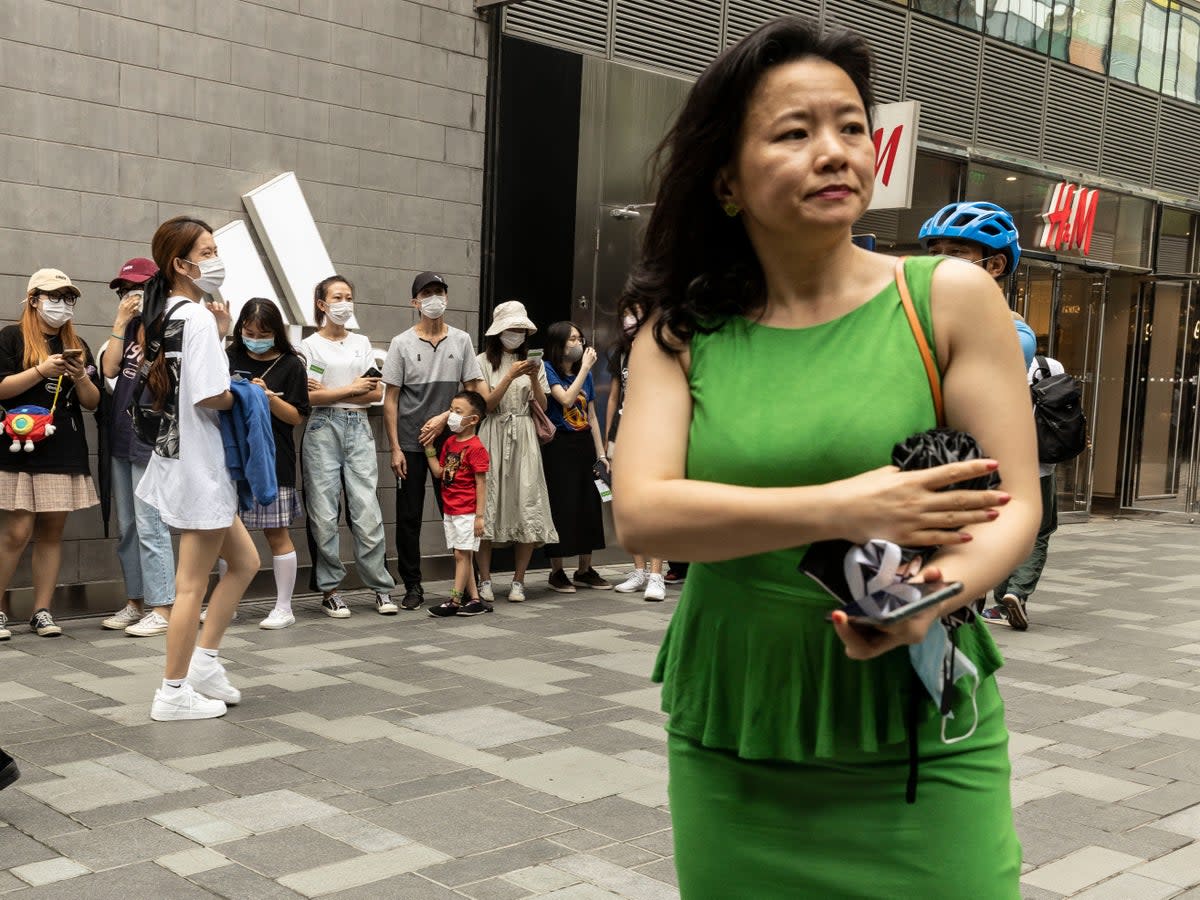Cheng Lei: Australian PM asks China to give journalist detained in Beijing access to her children

Australia’s prime minister has asked China to allow a Chinese-born journalist contact with her children after being detained by the Asian giant for two years.
Australia has also called out China for a lack of transparency in the trial of journalist Cheng Lei, who has been detained since 2020.
Prime minister Anthony Albanese on Wednesday renewed Australian government’s will to continue to make representation with Chinese government for the detained journalist’s rights and urged China to “do better”.
“Cheng Lei should have access to her family. Australia continues to make representation and we have a very strong view about her treatment, and we’ll continue to make representation,” Mr Albanese told reporters.
“There’s been no transparency in any of these processes at all. And the Chinese Government needs to do better,” he added.
Cheng, a Chinese-born journalist who lived in Australia, was first detained in 2020 and then later formally arrested in 2021 on allegations of spying and providing state secrets to a foreign country.
In March this year, authorities held a trial in Beijing but did not allow Australian diplomats inside the court.
The former journalist who worked in China alleged in June that she is not allowed to speak to her family, and her partner Nick Coyle said her health has deteriorated because of a poor diet inside prison.
Cheng worked for CGTN, the state-run English language news channel for China Central Television (CCTV).
The Australian prime minister’s remarks on Wednesday came after Xiao Qian, China’s envoy to Australia, offered to help the detained Australian journalist contact her family and suggested leaders of the two countries might meet without “preconditions”.
Mr Xiao said on Tuesday he had sympathy on humanitarian grounds for Cheng’s family, which includes a young son and daughter who live with their grandparents in Melbourne.
“Personally, I have sympathy to her family, her kids and their relatives that they face such a difficult situation,” Mr Xiao told Australian Broadcasting Corp.
“On the humanitarian basis, I’ve been trying to see if I can be [of] help as ambassador to facilitate a possible much easier access” between Cheng and her family, he added.
But he also insisted the allegations against Cheng were the truth.
“We have evidence – and before we put her into custody. The Australian diplomat in China can get access to her almost every week. They know where she is, they know how she is,” he said.
Responding to Mr Xiao’s suggestion of a meeting with Xi Jinping, Mr Albanese said he would “welcome” such a meeting in remarks that could potentially thaw relations between the two countries.
Frosty bilateral relations between the countries, which had taken a nosedive during Mr Albanese’s predecessor Scott Morrison’s term, appear to be on a mend for the first time in nine years after the change in government after elections in May.
Cheng’s Papua New Guinea-based partner, Mr Coyle, earlier said the journalist’s access to her family was “virtually nonexistent”.
“Lei hasn’t been able to make a phone call or anything like that to her children, to her parents to any of her loved ones now in two years,” Coyle told Sky News.
Her family denies the allegations and is convinced she is innocent.


